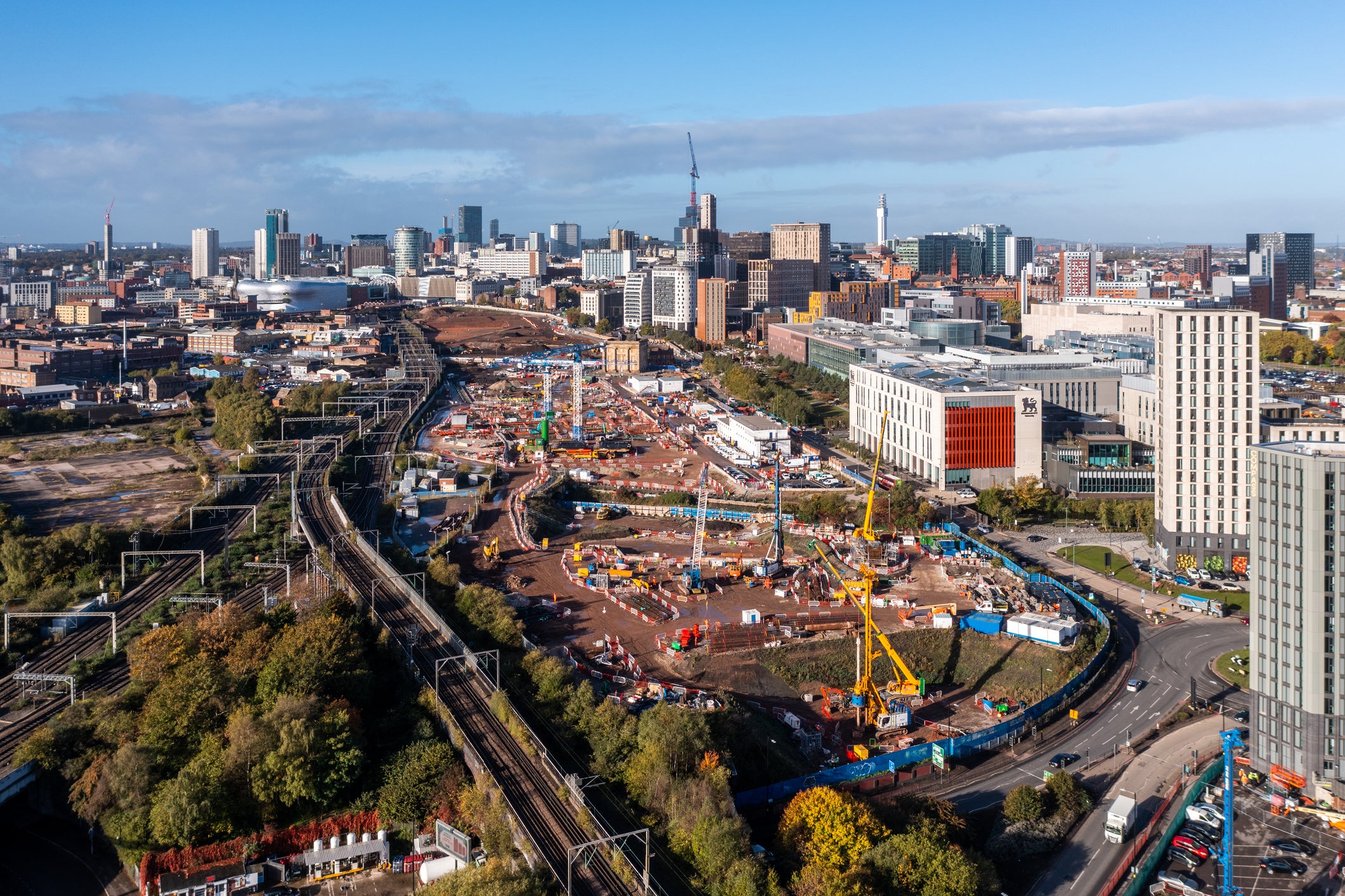‘HS2 light’ link to Manchester could replace scrapped line beyond Birmingham
Proposals are being reviewed for a more cost-effective HS2 line to Crewe

Ministers are considering a “HS2 light” railway line linking Birmingham and Manchester as part of a cheaper proposal to solve the “capacity crunch” in the north.
The scaled-back HS2 ‘Phase 2’ track could be built to connect Birmingham Curzon Street and Crewe.
Trains travelling at around 185mph on the “light” line would be faster than those on the West Coast Main Line (WCML) route, but slower than the 225mph speeds of HS2.
Plans to extend the high-speed line beyond Birmingham were controversially scrapped by Rishi Sunak last October to cut costs by £36bn.
Supporters reportedly believe they could deliver the city linking line, similar to proposals put forward by Greater Manchester mayor Andy Burnham and West Midland mayor Richard Parker, for up to 40 per cent cheaper than the original HS2 scheme.
In a report published last month, Mr Burnham did not provide an estimated cost of the proposed 50-mile Midlands-North West rail link but said financing should be “maximised from the private sector”, with central and local governments “partnering to fund the balance”.
If the line goes ahead, journey times between London and Manchester would run 30 minutes faster than existing times and just 15 minutes slower than the original HS2 plans.
Without new high-speed tracks, the existing rail infrastructure in the north, including the WCML, would reach maximum capacity and “collapse” when HS2 trains start running in the 2030s, said a report by Transport for the North.
According to the National Audit Office, overall rail capacity in Birmingham and Manchester could be reduced by 17 per cent.
Transport secretary Louise Haigh is looking “very seriously” at how to increase rail investment in the north, said culture secretary Lisa Nandy amid the reports.
Simon Calder, travel correspondent at The Independent, said: “Most prime ministers like to build something as a legacy; instead, a year ago, Rishi Sunak chose to cancel the most important elements of the biggest infrastructure project in British history.
“The section of HS2 between Birmingham and Crewe, continuing to Manchester, is the most desperately needed of the whole line. So a typical British infrastructure fudge looks likely: a downgraded and, crucially, renamed line.
“As soon as the name High Speed 2 was chosen, the project became toxic. It’s not about getting from London to Manchester an hour quicker – it’s about freeing up capacity to declutter the absurdly crowded rail network.
“Whether you call it “Quite High Speed 2”, or “I can’t believe it’s not HS2”, it has to be built.”
The proposal comes after the transport secretary indicated that HS2 would terminate at London Euston rather than Old Oak Common, saying it “would never have made sense” for that not to happen, following months of speculation over the rail line.
A final announcement on where HS2 will terminate is expected to come around the time of the Budget on 30 October.
For more travel news and advice, listen to Simon Calder’s podcast
Join our commenting forum
Join thought-provoking conversations, follow other Independent readers and see their replies
Comments
Bookmark popover
Removed from bookmarks